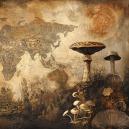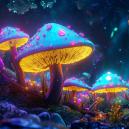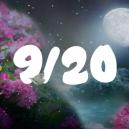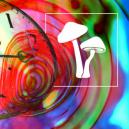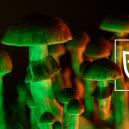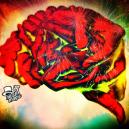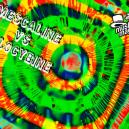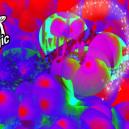Psilocybin Promotes The Growth Of New Brain Cells
Published :
June 18th, 2018
Categories :
Research

Clinical studies are showing the amazing potential of psilocybin as a treatment for a number of psychological disorders. Similar trials also suggest that psilocybin can stimulate the growth of new brain cells. The humble shroom may be soon resurrected as a respected medicine.
PSYCHEDELIC MUSHROOMS ARE GOOD FOR YOUR BRAIN
Magic mushrooms are a family of psychedelic mushroom that contain the active compounds psilocybin or psilocin. When consumed by humans, these alkaloids produce altered states of mind. Depending on the dose, the effects can range in intensity from barely noticeable to overwhelmingly profound. In both instances, modern medicine is discovering the transformative benefits of shrooms.
Although there may be some debate about the provenance of the modern magic mushroom myth, some things are well-known and have become part of Western pop culture since the mid-50s. First, there was the seminal 1957 psychedelic mushroom article in Life magazine by Valentina & R Gordon Wasson. This article inspired the curiosity of a young Dr Timothy Leary; he of “turn on, tune in, drop out” fame. The Harvard lecturer in clinical psychology and his fellow Richard Alpert went on to form the Harvard Psilocybin Project. Both eventually fell into disrepute and were fired for their over-enthusiastic distribution of psilocybin to the student body.
Soon after, the psychedelic revolution would define a period of cultural change that terrified the authorities. As a response, psychedelic substances like shrooms and LSD, as well as cannabis and heroin were classified as Schedule 1 drugs in 1971. That inherently describes that they have no known medical use. Thankfully, times are slowly changing. Today, clinical studies on the beneficial effects of these substances don’t get most researchers thrown in jail. Such studies are producing profound breakthroughs, and it wouldn’t be unlikely to see a Nobel Prize awarded for this research in the near future.
THE STUDIES ARE IN
The shaman were definitely onto something; psilocybin is proving to be a compound with a number of therapeutic psychological benefits. Directly in the treatment of disorders of the mind, and indirectly by providing insight into the way the brain functions. Recent clinical trials have revealed a number of psilocybin’s benefits. One study by Johns Hopkins University of Baltimore concluded that psilocybin was effective in promoting an improved state of mind in terminal patients. Similarly, research by New York University showed that treatment with psilocybin stopped the symptoms of anxiety and depression in terminal cancer patients, which precluded the need for further treatment with pharmaceuticals.
Promisingly, psilocybin may help grow new brain cells. Neurogenesis occurs in the hippocampus. This small part of the brain is responsible for learning and memory. It is here that proto-cells are created that go on to differentiate into specific types of brain cells. Psilocybin is exceptionally active in the hippocampus as published by Briony J Catlow and colleagues in Experimental Brain Research in 2013.
Researchers from the University of South Florida trained mice to fear an electric shock when hearing a certain sound. Mice treated with psilocybin were quicker to learn to stop reacting to the shock-trigger than untreated mice. At low doses, psilocybin triggered increased neurogenesis in the faster-learning mice. The researchers believe that psilocybin binds to the cells that stimulate growth and healing. This research concluded that psilocybin may be useful in the treatment of post-traumatic stress disorder (PTSD).
Similarly, psilocybin has been shown to connect previously unconnected parts of the brain. At high doses, this induces the effect of an hallucinogenic trip. At low doses, the brain becomes hyperconnected and demonstrates greater communication according to research published in the Journal of the Royal Society Interface in 2014. Fifteen volunteers were administered psilocybin or placebos. Cutting-edge brain scanning technology showed the brain of those on psilocybin reorganising itself into new networks of communication. Understanding this mechanism will lead to revolutionary treatments for psychological disorders and neurological problems.
THE FUTURE OF PSILOCYBIN AND THE BRAIN
The future seems bright for psilocybin. With the potential to help repair damaged brain cells and stimulate the production of new ones, it has far-reaching implications in the clinical treatment of patients with a range of conditions. However, these trials are still only preliminary, and bureaucracy makes it crushing and time-consuming to pursue further research. The continued Schedule 1 classification of psilocybin restricts the peer-reviewed science needed to unlock the potential of this ancient drug. Nevertheless, these early studies are fascinating and show great promise for the humble magic mushroom.





